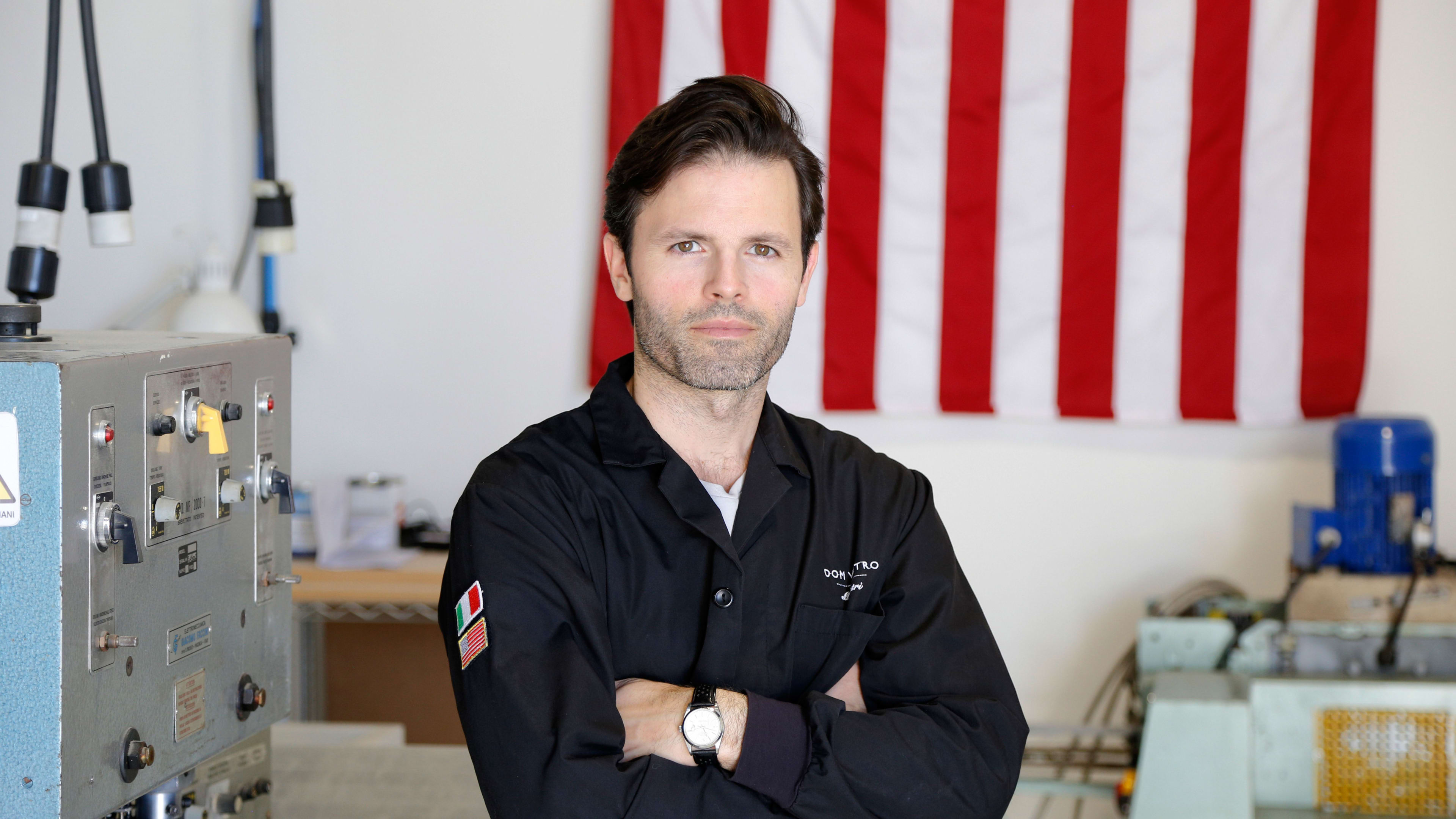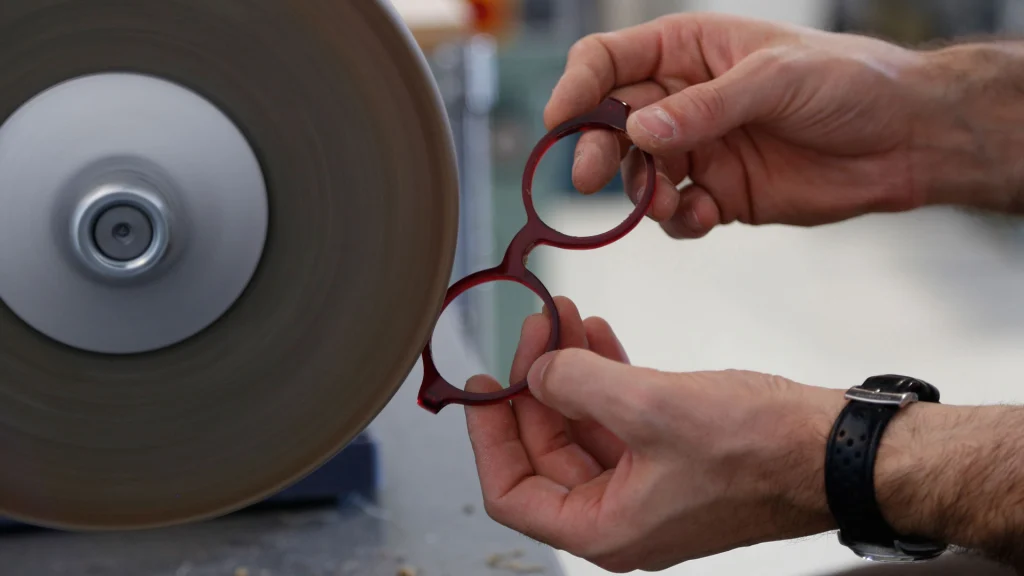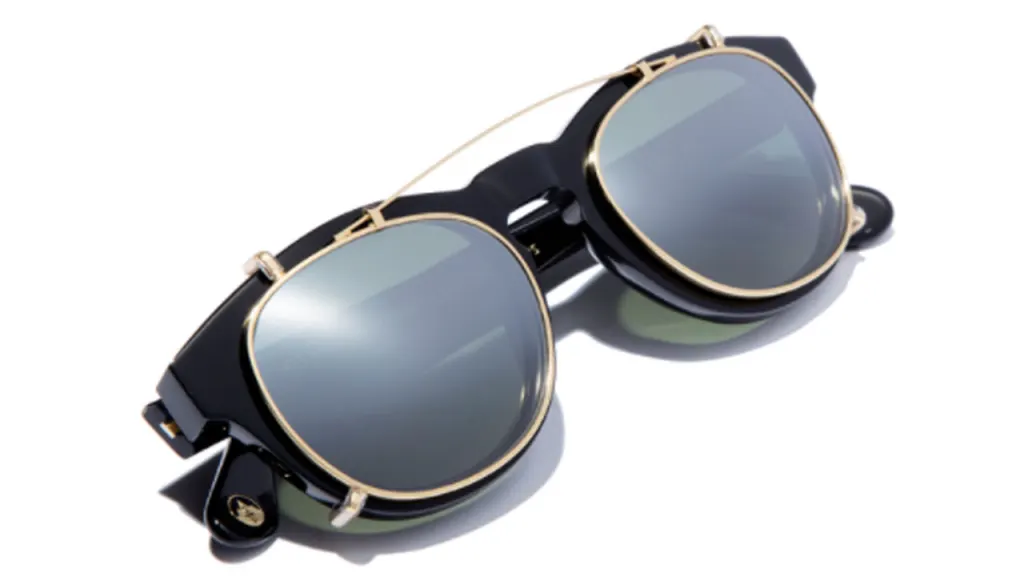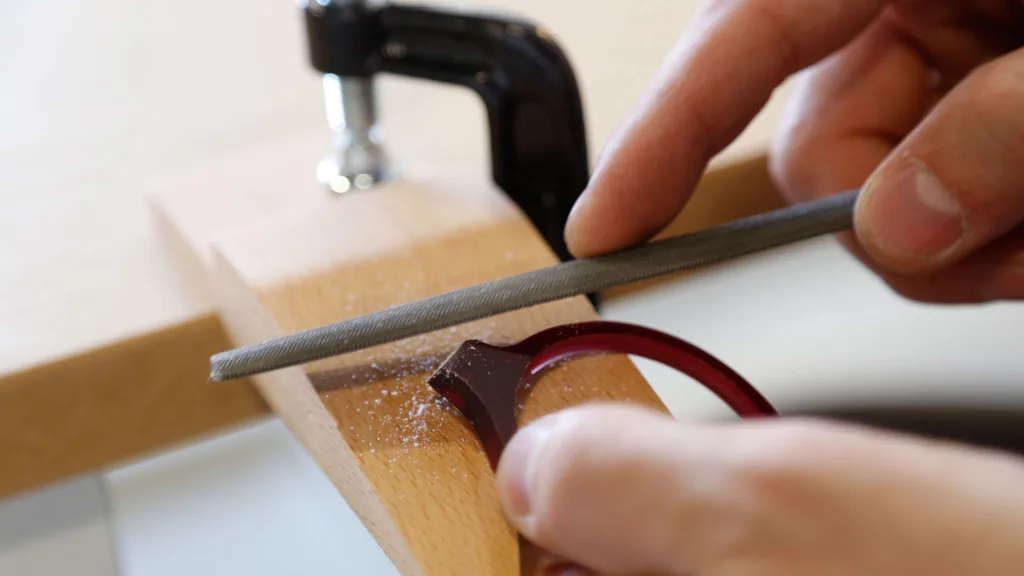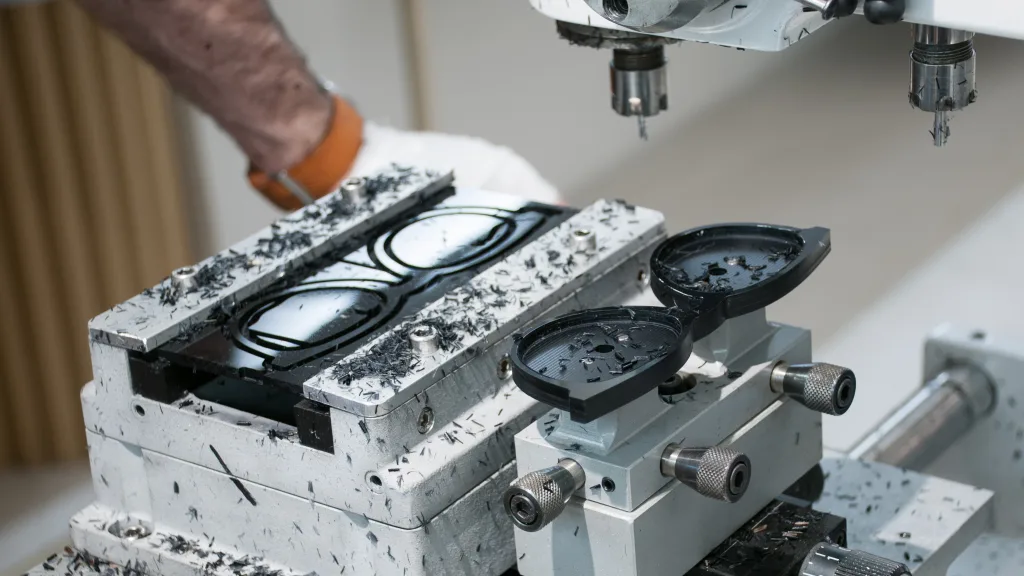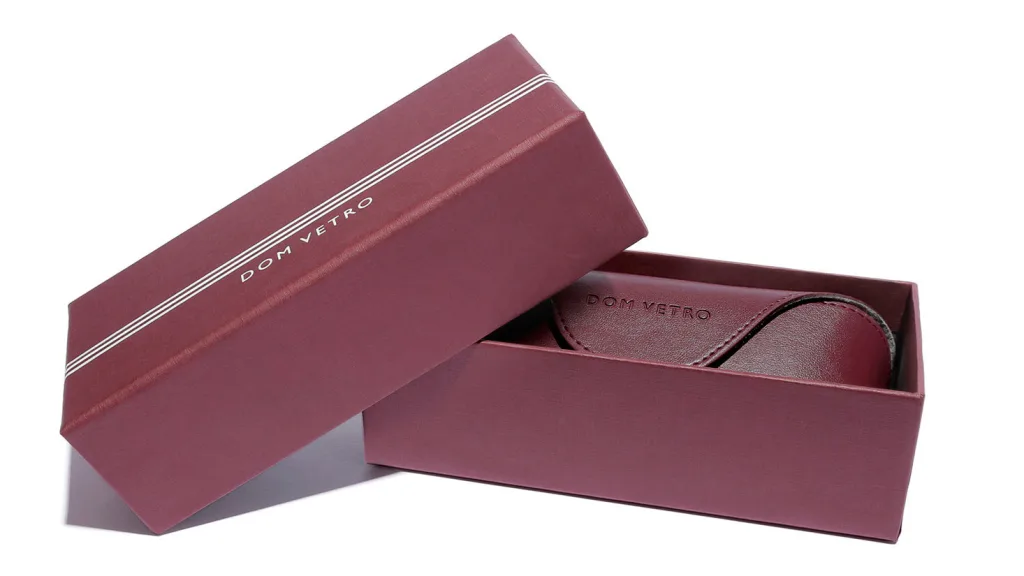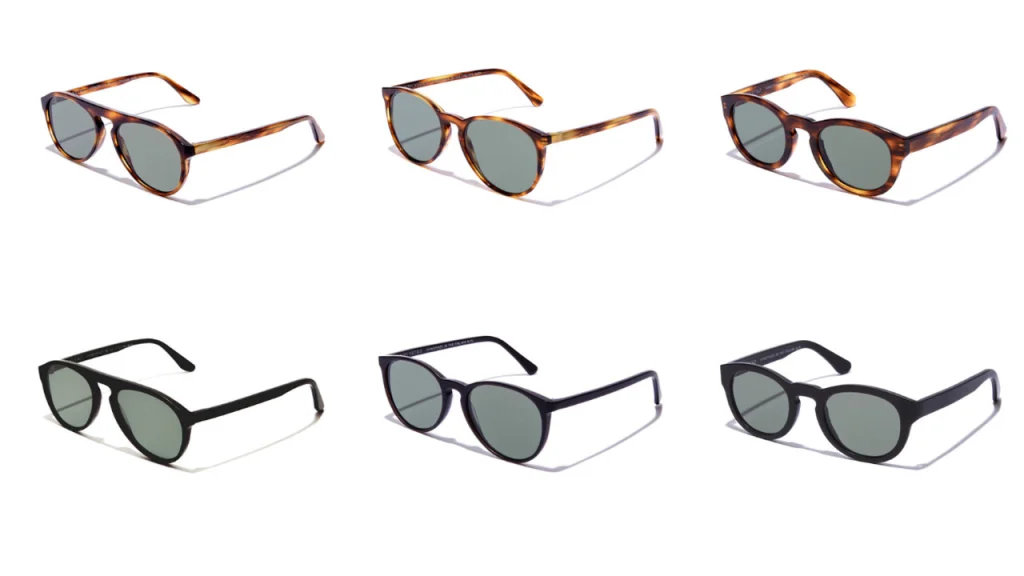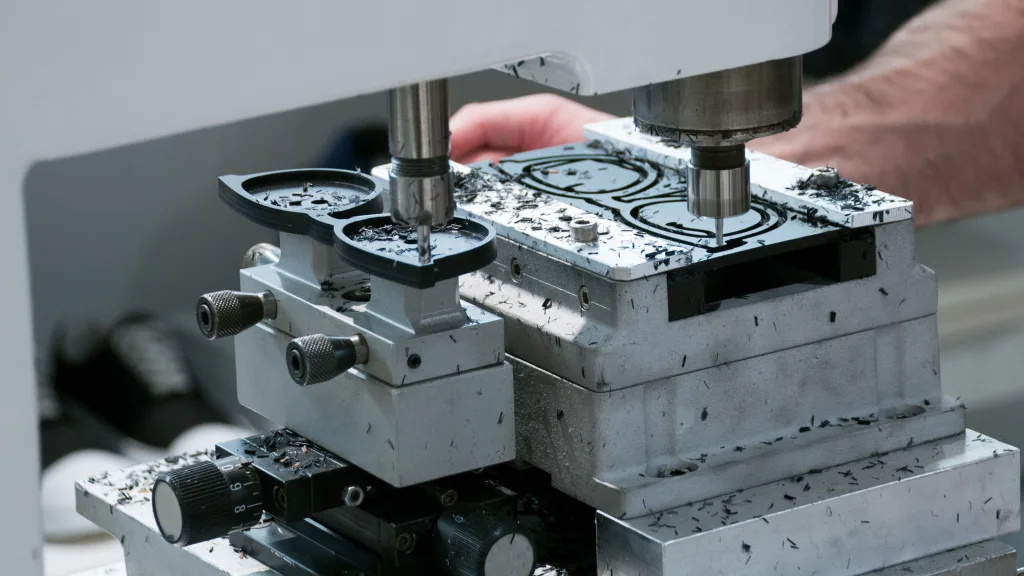Five years ago, Ashley Bezamat, a Stanford MBA who founded several medical device companies, decided he needed a change of pace from the hectic world of American startups. He wanted to spend time with artisans and craftsmen who worked slowly and created products with their hands. This led him to a remote Italian Alpine village in Veneto, where he lived on a vineyard, drove half an hour to get to the closet grocery store, and spent his days apprenticing with Italian eyewear craftsmen. By 2013, he had his own company, Dom Vetro–“House of Glass” in Italian–selling luxury sunglasses. “We’ve come to think of eyewear as a commodity, but it’s a very intimate product that sits on your face and that you wear throughout the day,” says Bezant. “All of the care that these artisans put into their work really matters.”
Italy has a long history of creating luxury eyewear, partly because the modern eyeglass was invented in that country, thanks to the abundance of zyl, an acetate that is crucial to the production of plastic frames. However, the vast majority of Italian eyewear craftsmen have been put out of work since the bulk of eyewear manufacturing now takes place in China, where labor is far cheaper. Luxottica, the Milan-based eyewear conglomerate worth $24 billion, produces the vast majority of its products in Chinese factories. Warby Parker, the e-commerce darling now valued at $1.2 billion, also makes the vast majority of its products in China. The latter has started investing in a facility in upstate New York that will create 128 jobs, but the plant will be focused on assembling lenses, rather than making frames.
Over the years, Bezamat himself became a skilled eyewear maker. But rather than grow out his startup in Italy, he has decided to come back to his hometown of Los Angeles to build a factory. His studio in Culver City is equipped with traditional equipment, like enormous containers of wood chips that, when spun around, smooth out the acetate for a polished finish.
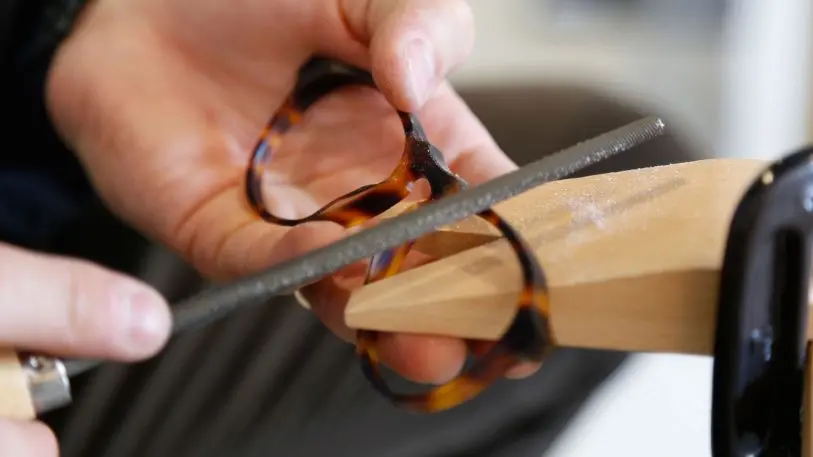
Each piece is built by hand, in a process that that always involves Bezamat himself. The Dom Vetro team is still small—just five people in the Culver City studio, says Bezamat—but he’s also seeking to bring more craftspeople from Japan, Italy, and the U.S. into his L.A. workshop.
Right now, 95% of eyewear sold in America is made overseas. Century-old heritage brands like Randolph in Massachusetts and Shuron in South Carolina have managed to stay afloat, even after eyewear manufacturing shifted overseas, but their business tends to be small and specialized. And State Optical in Chicago, a startup, is trying to bring the craft back to the United States.
Now Dom Vetro joins the mix, angling for a piece of the $13 billion premium eyewear market, and hoping to impact it too. “I really believe that it only takes a few companies to rejuvenate an industry,” Bezamat says. “It’s possible to train craftspeople who then go on to be passionate about their craft. I’m an example of this myself.”
Recognize your brand’s excellence by applying to this year’s Brands That Matter Awards before the early-rate deadline, May 3.
